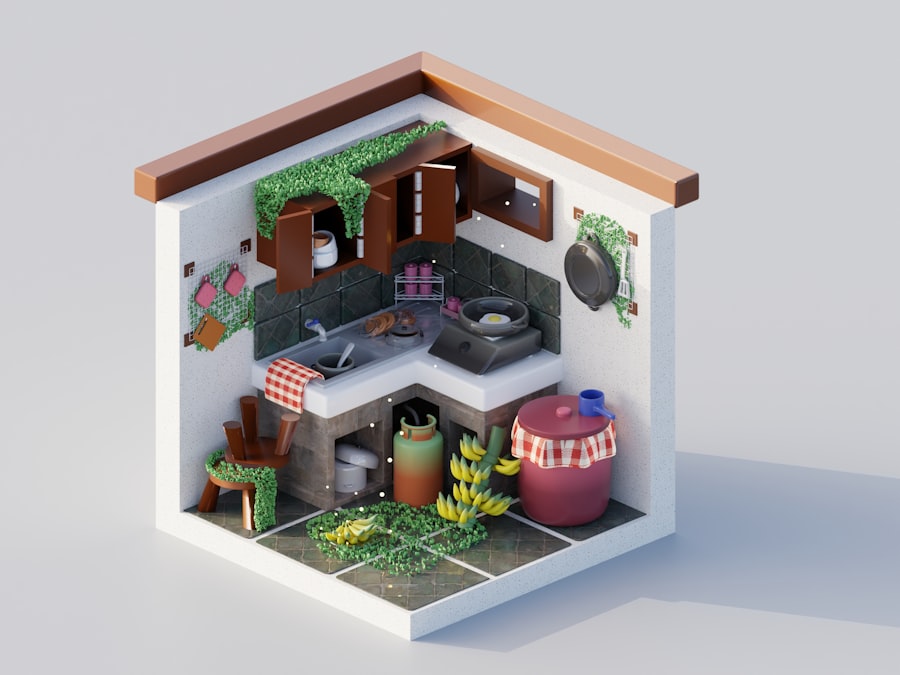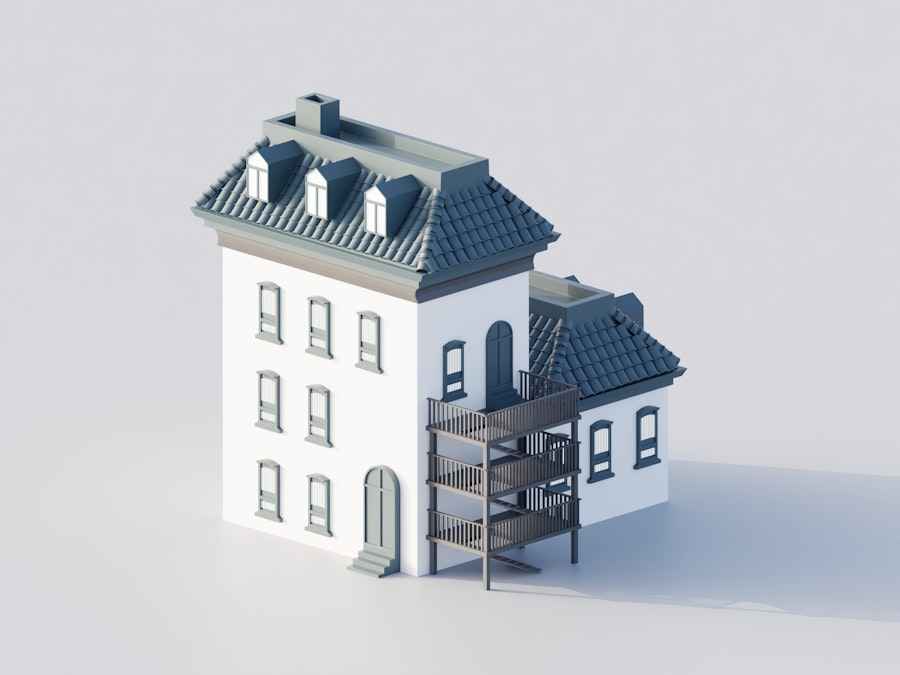Modular homes represent a unique segment of the housing market, distinguished by their construction process and design flexibility. Unlike traditional homes built entirely on-site, modular homes are prefabricated in sections or modules in a factory setting. These modules are then transported to the building site, where they are assembled on a permanent foundation.
This method of construction offers several advantages, including reduced build time, lower labor costs, and often enhanced quality control due to the controlled environment of the factory. The modular home industry has evolved significantly over the years, with modern designs that can rival traditional homes in aesthetics and functionality. One of the key features of modular homes is their adaptability.
They can be designed to meet a variety of architectural styles and personal preferences, ranging from contemporary to traditional designs. Homebuyers can choose from a wide array of floor plans, materials, and finishes, allowing for a high degree of customization. Additionally, modular homes are built to meet or exceed local building codes, ensuring that they are safe and durable.
This combination of efficiency, quality, and design flexibility makes modular homes an appealing option for many prospective homeowners.
Key Takeaways
- Modular homes offer flexible, factory-built housing options with various designs and features.
- Research and visit multiple dealers and model homes to compare quality and options.
- Evaluate pricing, floor plans, and customization possibilities to find the best fit for your needs.
- Check dealer reviews, references, customer service, and warranty coverage before purchasing.
- Understand the final purchase steps, including contracts, delivery timelines, and installation details.
Researching Modular Home Dealers
When considering the purchase of a modular home, one of the first steps is to research reputable modular home dealers. The dealer plays a crucial role in the home-buying process, as they are responsible for guiding you through the selection of your home, managing the order process, and coordinating delivery and installation. Start by compiling a list of potential dealers in your area.
Online resources, such as industry websites and local directories, can provide valuable information about dealers’ reputations and offerings. Once you have identified potential dealers, delve deeper into their backgrounds. Look for established companies with a solid track record in the modular home industry.
Investigate how long they have been in business and their affiliations with recognized manufacturers. A dealer with extensive experience is likely to have developed strong relationships with builders and suppliers, which can be beneficial in terms of pricing and service. Additionally, consider whether the dealer offers a range of modular home options from various manufacturers, as this can provide you with more choices and flexibility in your selection.
Visiting Showrooms and Model Homes

Visiting showrooms and model homes is an essential step in the process of selecting a modular home. Showrooms provide an opportunity to see various design options, materials, and finishes firsthand. Many dealers have dedicated spaces where you can explore different layouts and styles, allowing you to visualize how your future home might look.
During these visits, take note of the quality of construction and the attention to detail in the finishes. This firsthand experience can significantly influence your decision-making process. Model homes serve as tangible representations of what you can expect from a modular home.
They showcase not only the design but also the functionality of the space. Pay attention to how the layout flows and whether it meets your needs in terms of room sizes and configurations. Additionally, consider how well the model home is furnished and decorated; this can provide inspiration for your own design choices.
Engaging with sales representatives during your visit can also yield valuable insights into customization options and any current promotions or incentives that may be available.
Comparing Pricing and Floor Plans
| Plan Name | Monthly Price | Square Footage | Bedrooms | Bathrooms | Included Amenities |
|---|---|---|---|---|---|
| Basic | 500 | 750 | 1 | 1 | Gym Access, Parking |
| Standard | 750 | 1100 | 2 | 2 | Gym Access, Parking, Pool |
| Premium | 1000 | 1400 | 3 | 2.5 | Gym Access, Parking, Pool, Concierge |
| Luxury | 1500 | 2000 | 4 | 3 | All Amenities Included |
Once you have gathered information from various dealers and visited showrooms, it’s time to compare pricing and floor plans. Pricing for modular homes can vary significantly based on factors such as size, design complexity, materials used, and additional features. It’s essential to obtain detailed quotes from multiple dealers to ensure you are making an informed decision.
Be sure to ask for a breakdown of costs, including base prices for the home itself, delivery fees, installation costs, and any additional expenses related to site preparation or permits. In addition to pricing, comparing floor plans is crucial for finding a home that suits your lifestyle. Modular homes come in various configurations, from compact designs ideal for small families or retirees to expansive layouts suitable for larger households.
Consider how each floor plan accommodates your daily activities and future needs. Look for features such as open-concept living areas, adequate storage solutions, and outdoor spaces that enhance your living experience. By carefully evaluating both pricing and floor plans, you can identify options that align with your budget while meeting your functional requirements.
Checking Dealer Reviews and References
Before making a final decision on a modular home dealer, it is imperative to check reviews and references. Online platforms such as Google Reviews, Yelp, and specialized home-building forums can provide insights into other customers’ experiences with specific dealers. Pay attention to both positive and negative feedback; this will give you a balanced view of what to expect regarding service quality, responsiveness, and overall satisfaction.
In addition to online reviews, consider reaching out directly to past customers if possible. A reputable dealer should be willing to provide references upon request. Speaking with previous clients can offer invaluable insights into their experiences throughout the buying process, including any challenges they faced and how effectively those challenges were addressed by the dealer.
This direct feedback can help you gauge the reliability and professionalism of the dealer you are considering.
Evaluating Customer Service and Warranty

Customer service is a critical aspect of purchasing a modular home that should not be overlooked. From your initial inquiry through the final stages of delivery and installation, the level of support you receive from your dealer can significantly impact your overall experience. Assess how responsive the dealer is during your research phase; prompt answers to your questions can indicate a commitment to customer satisfaction.
Additionally, consider how knowledgeable their staff is about modular homes; a well-informed team can provide valuable guidance throughout the process. Equally important is understanding the warranty offered by the dealer or manufacturer. A comprehensive warranty can provide peace of mind regarding your investment in a modular home.
Typically, warranties cover structural defects, plumbing issues, electrical systems, and other essential components of the home for a specified period. Review the terms of the warranty carefully; look for details on what is covered, how long coverage lasts, and any conditions that may apply. A strong warranty reflects confidence in the quality of construction and materials used in your modular home.
Reviewing Customization Options
One of the most appealing aspects of modular homes is the ability to customize them according to personal preferences and lifestyle needs. When reviewing options with your dealer, inquire about the extent of customization available for both interior and exterior elements. Many manufacturers offer a range of choices for floor plans, finishes, appliances, fixtures, and even energy-efficient upgrades that can enhance comfort while reducing utility costs.
Customization can extend beyond aesthetic choices; consider how modifications might improve functionality or accommodate future needs. For instance, if you plan to expand your family or require additional space for hobbies or work-from-home arrangements, discuss options for adding rooms or flexible spaces within the design. Understanding what customization options are available will help you create a home that truly reflects your vision while meeting practical requirements.
Finalizing the Purchase and Delivery Process
After thorough research and consideration of all factors involved in purchasing a modular home, it’s time to finalize your decision. This stage typically involves signing contracts that outline all agreed-upon terms regarding pricing, customization options, delivery timelines, and warranty details. Ensure that you read all documents carefully before signing; clarity on these points will help prevent misunderstandings later in the process.
The delivery process is another critical aspect to consider when finalizing your purchase. Discuss logistics with your dealer to understand how long it will take for your home to be manufactured and delivered once you place your order. Factors such as site preparation and local regulations may influence delivery timelines as well.
It’s essential to maintain open communication with your dealer throughout this phase to ensure that everything proceeds smoothly from production through installation on-site. By following these steps—understanding modular homes, researching dealers, visiting showrooms, comparing options, checking reviews, evaluating customer service, reviewing customization possibilities, and finalizing the purchase—you can navigate the journey toward owning a modular home with confidence and clarity. Each stage presents opportunities for informed decision-making that will ultimately lead to a successful investment in your future living space.



